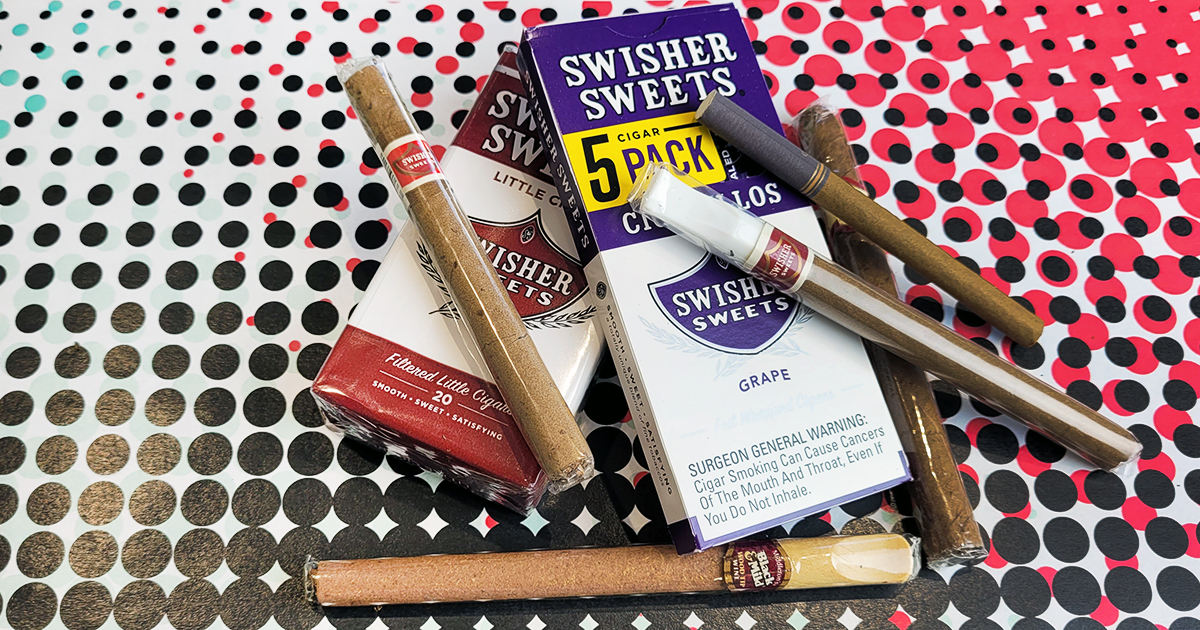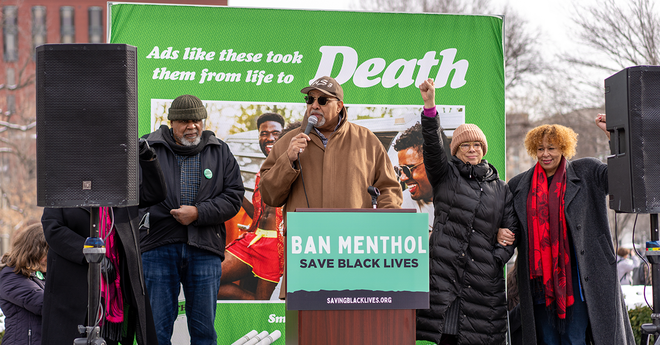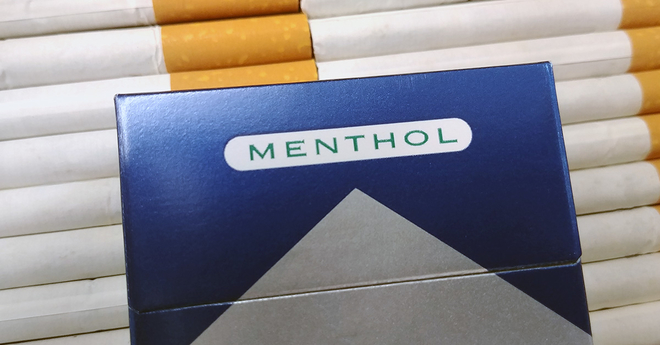New study: Success of local flavored cigar sales restrictions underscores need for national regulations
Flavored cigar sales restrictions in California, Illinois, Massachusetts, and New York significantly reduced cigar sales, according to new Truth Initiative® research published in Nicotine & Tobacco Research. In these four states, sales fell by up to 19% for all cigars and up to 41% for little cigars, which are especially popular among youth. The study provides further support for the Food and Drug Administration’s 2022 proposed rule to prohibit all characterizing flavors in cigars, which the FDA has not yet finalized.

Why flavored cigars are a concern
Flavors are a major reason why young people use cigars, with 74% of adolescents who used cigars in the past month indicating that they used cigars “because they come in flavors I like.” Smoking cigars is a known health risk: cigars expose their users to higher levels of dangerous chemicals and compounds than cigarettes, and cigar smoking is associated with increased risk of cancer, chronic obstructive pulmonary disease, and higher mortality rates.
Truth Initiative research has also found links between e-cigarette use and future cigar use: young people who used e-cigarettes had more than triple the odds of going on to use cigars, little cigars, or cigarillos within two years compared to those who had never vaped nicotine – a troubling association given the high prevalence of youth e-cigarette use.
Flavored cigar sales restrictions reduce sales
In the study, researchers used Truth Initiative’s Flavored Tobacco Sales Restriction database to identify states with substantial proportions of the population covered by local or state flavored cigar sales restrictions. Researchers identified four states – California, Illinois, Massachusetts, and New York – and used 2020 U.S. Census Bureau data to determine quarterly estimates of the percent of the population covered by a flavored cigar sales restriction from 2013 to 2022. Researchers then used Nielsen IQ* retail scanner data to measure unit sales of cigars, cigarillos, and little cigars between 2013 and 2022 in California, Illinois, Massachusetts, and New York and examined the association between population coverage by flavored cigar sales restrictions and cigar sales.
Results indicate that increasing population coverage by cigar sales restrictions in these four states was significantly associated with decreases in cigar sales. Increasing the percentage of the population covered by a flavored cigar sales restriction by 25% decreased sales of all cigars by 15%-19%, large cigars by 4%-10%, cigarillos by 17%-21%, and little cigars by 2%-41%. The effects of flavored sales restrictions were larger for cigarillos and little cigars, which are often called “cigarettes in disguise” because of their size and shape.
The sale of flavored cigars contributes to health disparities
Because flavored cigars appeal to young people and Black youth have a higher prevalence of cigar use compared to White youth, the study results also suggest that removing flavors from cigars nationally would have a strong impact on reducing cigar smoking prevalence and health-related disparities across the U.S.
The 2009 Family Smoking Prevention and Tobacco Control Act prohibited flavored cigarettes but exempted menthol cigarettes and this restriction did not apply to flavored cigars, prompting many young people to switch from flavored cigarettes to flavored cigars, which are available in over 250 youth-appealing flavors such as menthol, fruit, and candy.
The exemption of flavored cigars in the TCA was associated with a 34% increase in youth cigar use, particularly increasing among racial and ethnic minorities. According to 2021 NYTS data, cigar use prevalence among Black youth (3.1%) was higher than White (1.4%) and Hispanic (0.9%) youth. Menthol cigarettes and flavored cigars are disproportionately marketed to disadvantaged communities: individuals living in racially diverse and lower income areas have seven times greater odds of being exposed to flavored tobacco marketing. Misconceptions that flavored tobacco products are less harmful, in conjunction with targeted marketing efforts, may put minority communities at increased risk of tobacco-related disease.
A federal flavored tobacco restriction is a step towards health equity
Health inequities posed by the sale and use of flavored tobacco products may be reduced by comprehensive flavored tobacco sales restrictions. In April 2022, the FDA proposed regulations that would remove menthol cigarettes and flavored cigars from the market. Findings from the current study suggest that a federal restriction could meaningfully reduce flavored cigar sales, with the greatest impact on cigarillos and little cigars, which are disproportionally marketed to economically and socially disadvantaged groups.
As of June 2023, 395 local and state jurisdictions have some type of restriction on sales of flavored tobacco products, covering over 33% of the U.S. population. Researchers underscore the importance of local and state flavored cigar sales restrictions until a federal rule is finalized: “…until the FDA finalizes and implements this proposed rule restricting the sale of flavored cigars, many localities and states have and should use the opportunity to restrict the sale of flavored tobacco products, including cigars,” the authors write. “Doing so limits the availability of such highly appealing tobacco products to youth.”
Researchers also note that when finalized, a federal rule on flavored cigars should apply to all cigars and not exempt any type of cigar product, such as “premium” cigars. Research shows that restricting some products but not others leads to tobacco users switching products instead of quitting. Recently, a federal judge struck down the FDA’s authority to regulate premium cigars, further complicating the cigar policy landscape. Truth Initiative continues to support the restriction of sales of all flavored tobacco products, which attract non-users and are used by an overwhelming majority of young tobacco users.



